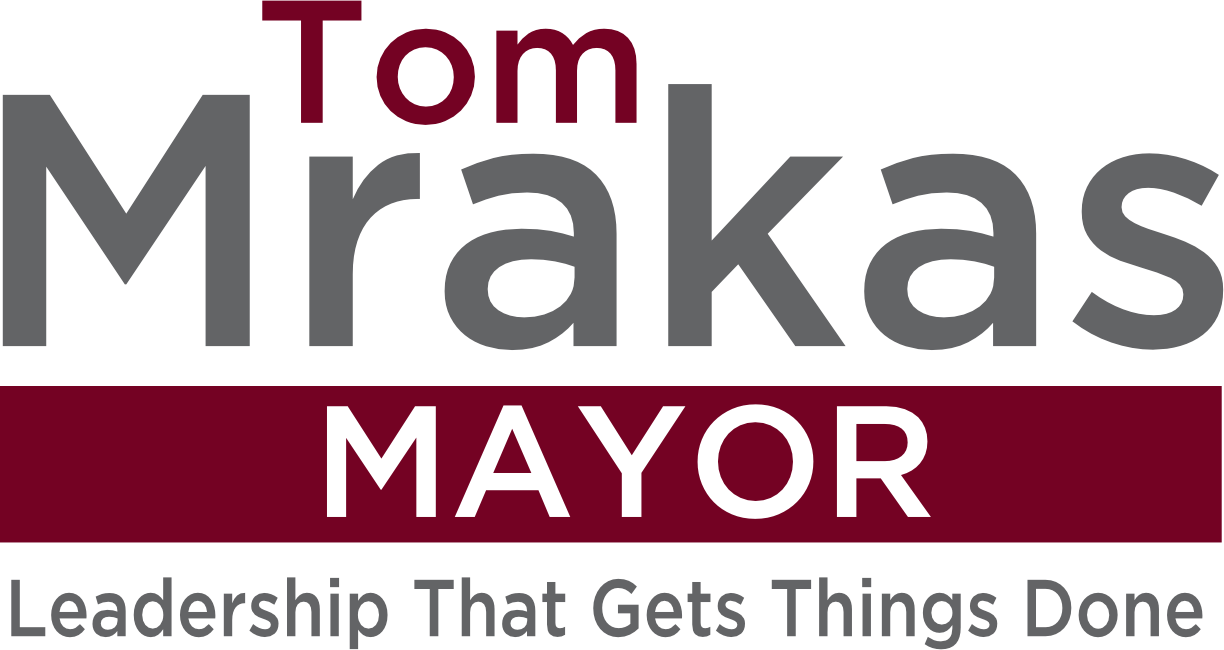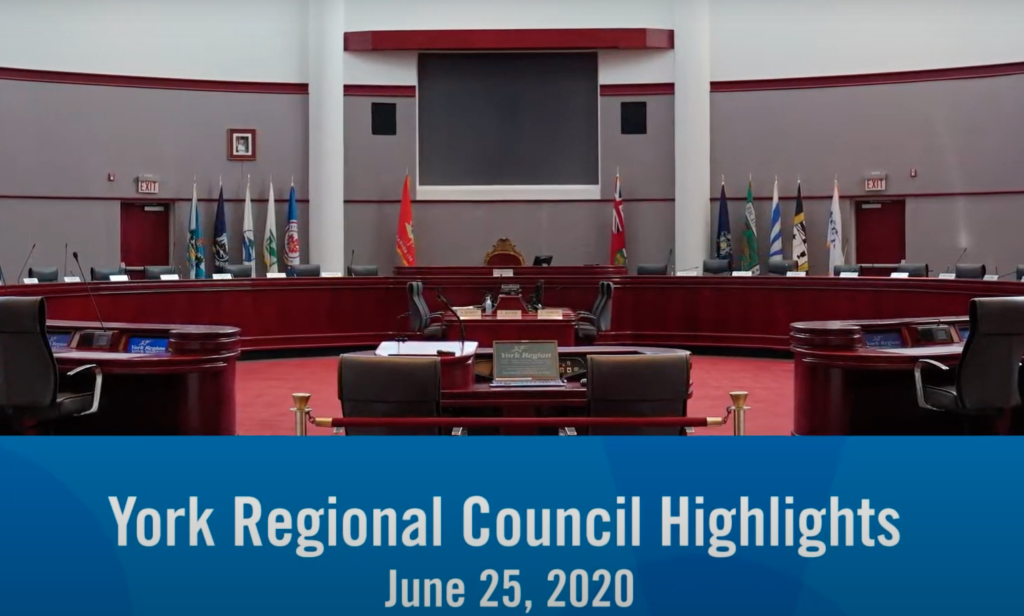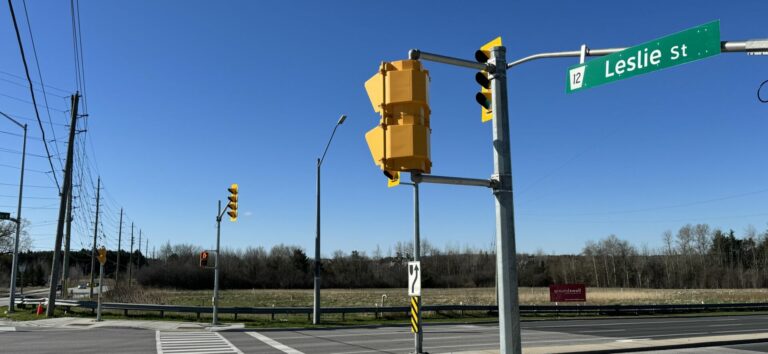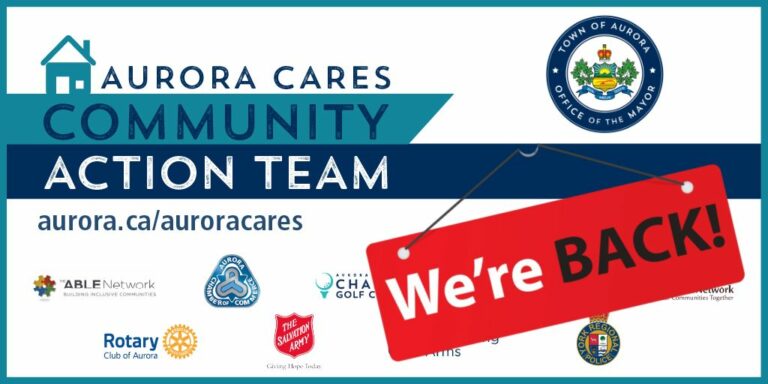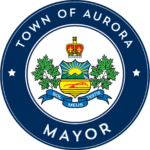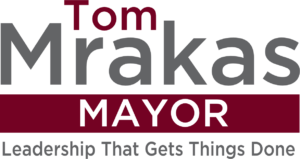York Region moves to Stage 2 of provincial re-opening
On Friday, June 19, 2019, The Regional Municipality of York moved into Stage 2 of the provincial re-opening framework.
Throughout the COVID-19 global pandemic York Region has remained committed to protecting the health and safety of all residents while taking prudent measures to stop the spread of this virus. In the weeks ahead we will continue to follow the lead of the provincial government to ensure the timelines for the next stage of re-opening are safe for all who live and work in our communities.
Regional Council recognizes entering Stage 2 is a testament to the residents and employees of York Region continuing to do their part to stop the spread of COVID-19. Thanks to these efforts, more businesses are able to re-open, families can visit with more loved ones and residents will be able to enjoy more of the activities.
While this is great news for York Region and our local economy, the fight against COVID-19 is not over. All York Region residents must continue doing their part to keep each other, our families and our communities safe. This includes staying at home when sick, maintaining physical distancing, washing your hands frequently with soap and water and wearing a two layer non-medical mask when physical distancing is not possible.
Impacts of COVID-19
Regional Council received a number of updates on York Region’s current response to the COVID-19 global pandemic and the on-going impacts on The Regional Municipality of York.
Analysis of financial information suggests unexpected costs and reduced revenues have had a cumulative impact of $50.02 million, or approximately $4.2 million per week on average.
If the current situation and recovery period continues for another six months, trends suggest the total impacts could be approximately $129 million in 2020.
Included in the COVID-19 update is an analysis on the impact on travel in York Region.
With the closure of non-essential businesses, typical weekday traffic volumes reduced by almost 50% and weekend traffic volumes decreased approximately 42%. Daily heavy truck volumes did not change significantly and increased from approximately 3% to 8%.
York Region Transit (YRT) has also seen a significant decrease in ridership, up to 80%. To address physical distancing requirements, temporary traveller boarding standards have been implemented allowing 30% of available capacity to be used at any one time.
With the reduction of traffic volumes, construction projects have been working extended hours, allowing work to be completed faster and reducing the need for delays when traffic volumes increase.
Additional reports suggest the on-going pandemic will likely delay the development of the provincially mandated Community Safety and Well-being Plan and will defer the implementation of the Housing Services Act, Regulatory Amendments.
The province has advised the deadline to prepare and adopt a Community Safety and Well-Being Plan has been extended past January 1, 2021. Planned in-person community engagement remains on hold, however information and response to needs of vulnerable residents in York Region is helping shape what an appropriate plan could look after COVID-19 and beyond.
The COVID-19 situation also presents internal and external risks and resourcing factors related to the implementation of the Housing Services Act. In an effort to minimize impacts on tenants, co-operative members and housing wait list applicants, changes related to subsidized housing refusals have been deferred to January 1, 2021, while changes to the rent-geared-to-income program will not come into effect until July 1, 2021 as permitted by provincial regulation.
Face coverings mandatory on York RegionTransit starting July 2, 2020
Regional Council approved a transit bylaw to make it mandatory for travellers to wear a non-medical face mask or covering while on a York Region Transit vehicle and all transit properties effective Thursday, July 2, 2020.
Numerous measures have been put in place to reduce the risk of spreading COVID-19 while helping to keep travellers and staff safe. These include enhanced cleaning and disinfection of buses and facilities and reducing the number of seats available to assist with physical distancing.
A limited number of non-medical masks will be available for passengers who do not have their own. Travellers are reminded if using disposable masks to ensure they are discarded properly in the garbage.
Children under the age of two, those unable to wear a face covering because of a medical condition and passengers needing assistance placing or removing a face covering are exempt from adhering to this bylaw.
Additionally, on Thursday, July 2, YRT will begin front door boarding and travellers will exit the bus through the middle or rear doors to create a one-way traveller flow. Barrier shields are being installed within the driver’s area to provide protection between passengers and drivers. Hand sanitizer dispensers are also being installed at all YRT terminals.
YRT will continue to monitor updates to public health recommendations and provincial guidelines to ensure the transit system is adequately prepared to help reduce the spread of COVID-19 as the Province of Ontario re-opens.
Social Services response to COVID-19
York Region continues to develop and implement actions as part of its social service response to COVID-19 including:
- Enhanced Housing and Homelessness Supports
- Innovative Children’s Services
- Escalated Social Assistance and Income Supports
- Emergency Food Access
York Region’s updated community scan found the key issues for vulnerable populations in York Region included access to food, system navigation and mental health and addictions support.
York Region will continue to work with other levels of government to identify and address social service needs.
COVID-19 small business support
Regional Council authorized the repurposing of $500,000 from the Innovation Investment Reserve Fund to provide COVID-19 support to local small businesses.
Leveraging $500,000 from the Innovation Investment Reserve Fund to expand the reach of the Starter Company Plus program will provide support to small businesses across the nine local municipalities. Funds will be distributed through the Region’s Small Business Enterprise Centres or support will take place through existing municipal Community Improvement Plans.
Expanding resources in Public Health
Regional Council has approved the addition of eight permanent full time staff and up to 172 temporary full-time positions to support the on-going public health response to the COVID-19 pandemic.
Under the provincial Emergency Management and Civil Protection Act order, local boards of health are authorized to take reasonable measures to respond to, prevent and alleviate the outbreak of COVID-19.
As York Region enters Stage 2 and eventually Stage 3 of the provincial re-opening framework, additional staffing resources are required to sustain the response, support the resumption of essential public health services, prepare for subsequent pandemic waves and meet the requirements of re-opening the local economy.
Automated speed enforcement to slow drivers in school zones to launch in September
Regional Council received an update on automated speed enforcement, a pilot to have radar technology installed in community safety zones across the Region. The pilot program was scheduled to start this spring, however as a result of supplier and processing delays due to COVID-19, automated speed enforcement will be delayed until September 2020.
In October 2019, York Regional Council approved automated speed enforcement on Regional roads. The program remains a two-year limited use pilot aimed to create awareness and deter people from speeding near schools and is tentatively scheduled for September 2020 to August 2022.
Pedestrian and cyclist pilot significantly reducing collisions thus far
In 2019 enhanced operational measures were implemented at four signalized intersections to help further protect pedestrians and cyclists. Measures put in place includes no right turns on red, exclusive left turn signal, warning signage and advanced pedestrian signal.
Pedestrian and cyclist feedback has been positive, indicating a feeling of being safer when crossing the road.
Pilot measures are installed at the following locations:
- Bathurst Street and Carrville Road/Rutherford Road in The City of Vaughan
- Bathurst Street and Clark Avenue in The City of Vaughan
- Major Mackenzie Drive and Bayview Avenue in The City of Richmond Hill
- Yonge Street and Clark Avenue in The City of Markham
Preliminary findings at pilot locations indicate right turn on red restrictions and protected left-turn lights reduce vehicle-pedestrian collisions by more than 50% and vehicle collisions by approximately 80%.
Staff will continue to monitor and evaluate the pilot and report back to Regional Council with findings in 2021.
Greening the Region’s Fleet
Regional Council approved the purchase of six additional electric buses to the York Region Transit (YRT) fleet, moving toward the goal of net-zero greenhouse gas emissions by 2051.
Transit buses create 60% of York Region’s overall corporate greenhouse gas emissions. Electric buses will be phased in as diesel buses require replacement and as infrastructure improvements are made to support a fully electric fleet, significantly reducing greenhouse gas emissions.
The phased approach would see the purchase of six electric buses in 2021 with two additional electric buses purchased each year from 2022 to 2029.
Starting Monday, June 29, YRT will begin its trial of the electric buses purchased earlier this year. These electric buses will operate on routes 55 Davis Drive and 44 Bristol in the Town of Newmarket.
Over the next five years York Region has committed $14 million in energy conservation initiatives. Strategies to reduce corporate emissions focus on transit, buildings, non-transit fleets and water and wastewater processes. Outlined in the Energy Conservation and Demand Management Plan is interim targets to ensure the Region remains on track to meet its 2051 Vision. In 2019, York Region achieved its target and on its way towards the goal of net-zero greenhouse gas emissions.
York Region Court Services 2019 Annual Report
York Region Courts Services submitted its 2019 Annual Report to the Ministry of the Attorney General, outlining key accomplishments, activity and planned initiatives for 2020.
Highlights captured in the Court Services Annual 2019 Report include:
- 161,000-plus customers served in-person or by telephone
- 147,700 charges filed, a slight decrease from 2018
- 37,718 requests for disclosure
- 134,000-plus matters on trial dockets, including 671 charges related to cannabis enforcement
In 2019, Court Services also received a number of honours including the Peter J. Marshall Municipal Innovation Award from the Association of Municipalities of Ontario for leading the implementation of the first video testimony solution in a Province of Ontario court. It was also recognized by the Municipal Court Manager’s Association of Ontario with the 2019 Peer Recognition Award for Commitment to the Organization and the Innovation Award to two Court Services staff for their outstanding work, positive contributions, championing of change and creative forward thinking solutions.
York Region passes resolution to full producer responsibility
Regional Council passed a resolution for transitioning full responsibility for the Blue Box program to producers and/or service providers. The resolution includes the following recommendations to the Ontario government and the Association of Municipalities of Ontario:
- York Region’s prefers to transition blue box transfer and processing services concurrently with local municipal collection services in 2025
- York Region will no longer provide transfer and processing services after Blue Box Program transition
To minimize risk across the integrated waste system, the Region and its local cities and towns prefer to collectively transition together in 2025. To minimize disruption and impacts on collections for residents, the Region will negotiate with producers for transition timing to align with specific local municipal collection contracts. Negotiating an earlier transition would also maximize opportunities for cost savings.
Until the transition, Regional and local municipal staff will continue to collaboratively manage blue box contamination and ensure the blue box collection and processing system is working smoothly.
The later transition date aligns best with collection contract end dates and allows time to negotiate with contractors and producers on commercial terms for acting as a service provider with minimal penalties for amending and/or ending existing contracts.
2019 greenhouse gas emissions target achieved
York Region’s 2019 Corporate Energy Report identifies successes in reducing greenhouse gas emissions and energy consumption and costs from Regional operations. Report highlights include:
- Corporate greenhouse gas emissions are 1% below the Energy Conservation and Demand Management Plan target for 2019
- Corporate energy costs fell by 3% or $1.6 million as a result of lower market prices for gasoline and diesel fuel and successful natural gas and electricity procurement strategies
- $14 million has been committed over the past five years in energy conservation initiatives including building efficiencies, electric bus pilot projects and process upgrades
- Regional energy consumption totalled $50.7 million and produced 78,628 tonnes of greenhouse gas emissions
- Electrification of fleet vehicles and energy retrofits to Regional facilities are required to reach net-zero by 2051
The Region’s corporate emissions are 1% to 3% of total community emissions. While this contribution is small, York Region recognizes the importance of our role in leading emission reduction initiatives to achieve a more sustainable future.
York Region’s Corporate Energy Report tracks progress toward commitments made to mitigate impacts of climate change. York Region collaborates with local cities and towns to exchange information, share best practices and initiatives to reduce energy consumption and greenhouse gas emissions.
New 20-year York Durham Sewage System Operating Agreement with Durham Region
York Region is implementing a new York Durham Sewage System Operating Agreement with Durham Region for 20 years beginning July 1, 2020. The agreement builds on the principles of transparency, enhanced reporting and achieving operational excellence, taking into account industry best practices, research and innovation.
Durham Region is a committed partner and successful operator of the Duffin Creek Plant. This new Operating Agreement will provide continuity in plant operations. Executing a new Operating Agreement reflects the long-term partnership between York Region and Durham Region in co-owning and managing the York Durham Sewage System Primary System, including the Duffin Creek Plant, to serve their respective residents.
The current Operating Agreement with Durham Region has been in place since 1997 and expires on June 30, 2020.
Since 1997, York Region has initiated and completed major improvements and expansions to address capacity and regulatory needs including optimization, rehabilitation and expansion of infrastructure to increase capacity and treatment.
Hospital capital funding for 2020
York Region continues to assist our local hospitals grow through its commitment to providing $7 million to local hospitals in 2020. Annual funding amounts are adjusted for hospital performance and assessment growth and have helped fund capital improvements at four local hospitals:
- Mackenzie Vaughan Hospital
- Markham Stouffville Hospital
- Southlake Regional Health Centre
- Mackenzie Richmond Hill Hospital
York Region’s contributions to hospital capital projects will provide residents with improved access to health care, reduce off-load delays and support the Region’s Strategic Plan objective to improve access to health and social support services.
Regional Council approves contract to award Salvation Army to deliver the Homelessness Prevention Program
The Homelessness Prevention Program is one component of York Region’s investments and services to prevent homelessness and to help residents who become homeless with the necessary supports to find and keep housing. The program provides assistance to low income individuals and families who are experiencing homelessness, living in temporary shelter or at risk of losing their housing and not in receipt of Ontario Works or Ontario Disability Support Program assistance.
York Regional Council approved to enter into an agreement with The Governing Council of the Salvation Army in Canada through The Salvation Army Northridge Community Church to deliver the Homelessness Prevention Program for a term of up to five years.
Development activity during COVID19
York Region continues planning and development activity during COVID-19 on housing, institutional, commercial and industrial development and ensuring planning policies and applications are advanced.
While there was an initial pause as municipalities adjusted to the pandemic response and emergency orders, new applications have only slowed slightly and development fees collected by the Region are similar to this time last year.
During the COVID-19 shutdown (March 17 to May 1, 2020) approximately 45 construction sites were open or active. Following the initial lifting of provincial restrictions (May 4 to May 18, 2020) approximately 150 construction sites have been active.
Further assessment of development activity will be reported to Regional Council in September 2020.
York Region continues planning for density
As one of the fastest growing communities in Canada, York Region is expected to grow to 1.79 million people and 900,000 jobs by 2041. When planning for density in new communities, The Growth Plan requires a minimum density of 50 residents and jobs per hectare in York Region’s Designated Greenfield Area.
Building compact and complete communities supports efficient use of infrastructure and reduces impact on agricultural land, reduces car dependency, supports public transit investment and contributes to creating a sense of place.
Setting the right New Community Area density will support complete communities, align growth and infrastructure, provide a mix of housing options and protect greenspace.
York Region will consult with the local municipalities and the Building Industry and Land Development Association (BILD) on a revised density target in the Regional Official Plan for New Community Areas.
Measuring and monitoring affordable housing in 2019
Regional Council continues to work in collaboration with partners and local municipalities to implement new and innovative ways to address housing affordability and meet the growth projections outlined in the Regional Official Plan.
A full mix and range of housing options support growth and development of complete communities in York Region and helps to meet the needs of residents and workers of all ages and stages of life, impacting quality of life, community health and economic vitality.
York Region continues to face housing affordability challenges with only 14% of all new ownership and rental units affordable at the provincial threshold in 2019. The findings identify a need for more affordable ownership housing, including a full mix and range of unit sizes and the need for an increased supply of rental housing options.
To help address these challenges, York Region will continue to work with all levels of government and the development industry to explore new innovations and develop policy options through the Municipal Comprehensive Review process.
2019 Regional City Building update
Regional Council received an update on city building activities in 2019, including development, infrastructure investments and programs. Identified in the update are on-going and future initiatives that continue to drive city building projects forward to plan for complete communities.
In 2019, 40% of all York Region building permit activity and 79% of all apartment units were located in the Urban City Centres.
Planning for future growth in strategic locations, such as the Region’s Urban City Centres, helps align with existing and planned infrastructure and services. This also guides rapid transit investment, residential intensification and commercial growth. Employment in the Urban City Centres grew by 5.3% in 2019, adding 6,800 jobs to the local economy.
Job and development growth remain strong in York Region
In the 2019 Growth and Development Review, York Region continued to demonstrate growth in population, employment, construction value and the housing market.
Report highlights include:
- All local cities and towns experienced growth in 2019 with York Region’s population growing by 11,100 or 1%; employment grew by 13,650 jobs or 2.1%
- Unemployment rate of 4.4% was the lowest on record and lowest in the Greater Toronto and Hamilton Area
- Total construction value for industrial, commercial and institutional building permits increased by 26% over 2018 values to $1.25 billion
- Total construction value of $3.15 billion is the seventh highest value ever recorded for York Region
- Housing completions decreased by 48.3% to 5,294 compared to 10,230 in 2018; due to COVID-19. However 9,613 units are currently under construction
COVID-19 has led to a broad shutdown of economic activity and many sectors in York Region were impacted negatively. Prior to the current economic downturn, York Region’s employment activity continued to increase. A slow recovery has begun with support from the Business Recovery Support Partnership and the impacts to growth and development will be assessed and reported in the future.
Agriculture and Agri-food Strategy update
York Region highlights positive progress update for 2019 Agriculture and Agri-Food Strategy activities, partnerships and achievements.
The strategy identified 45 action items for implementation over five years (2018 to 2022) to support and grow the agriculture and agri-food sector. The strategy is currently on track with 40 of 45 actions, nearly 90%, underway, planned or completed. These include showcasing agricultural innovators / champions in York Region, implementing a local food education campaign, supporting an agri-food asset mapping project and launching the first ever York Region Food and Beverage Food Accelerator Program with York University’s YSpace.
York Region continued a number of funding partnerships to deliver projects that align with the Agriculture and Agri-Food Strategy and will continue to work on remaining deliverables for 2020 through to 2022 while focusing on building recovery post COVID-19.
Regional Official Plan Natural Systems Planning Background Report
York Region will update natural systems (natural heritage system and water resource system) as part of the Regional Official Plan update based on provincial plans and requirements. Updated natural systems mapping and policy direction will be included in the draft Official Plan anticipated in the first half of 2021.
Protection of natural systems through Greenlands System is a priority for York Region. The Regional Greenlands is a connected system of protected natural heritage features, land and water systems that ensure animal and plant species and their natural environment thrive.
York Region will continue discussions and engagement with local municipalities, conservation authorities and stakeholders will occur throughout the process of policy and mapping updates. Preliminary mapping and policy directions for natural heritage systems will be presented to Regional Council in advance of public consultation in 2021.
York Region not moving forward on study of Regional Fire Service
Regional Council received an update indicating four of the Region’s nine cities and towns do not support proceeding with a study to review the potential amalgamation on York Region’s eight local fire services.
York Region currently has eight local fire departments serving its nine cities and towns – with Central York Fire servicing the Towns of Aurora and the Town of Newmarket.
As a study of a potential Regional Fire Service is not currently supported by a sufficient number of local municipalities to represent a triple majority, York Region will not proceed further.
Mandated review of Council Composition
The Province of Ontario, through the Municipal Act, requires Regional Council to review the number of representatives from each of its nine local municipalities by December 2020.
Regional Council considered this on February 27, 2020, and through resolutions received from local municipal councils has initiated the process to change its composition by adding another member representing the City of Vaughan.
To pass a bylaw to change the composition of Regional Council, the motion must pass a triple majority approval. A triple majority is attained when the following three factors are met:
- A majority of Regional Council votes in favour of the bylaw
- A majority of the nine local municipal councils pass a resolution consenting to the bylaw
- The total number of voters in the local municipalities that have passed resolutions represent a majority of all electors in York Region
To complete the triple majority process, Regional Council will hold a public meeting in September 2020. If the bylaw is approved, the additional member for the City of Vaughan will be elected in the 2022 Municipal Election.
Community Report provides insight into York Region financial health
Regional Council received the 2019 Community Report which profiles key 2019 accomplishments. The report also highlights the Region’s strong financial state, information about York Region’s multi-year budget and the Regional Fiscal Strategy.
The Community Report delivers a comprehensive look into York Region’s strategic goals, demographics and highlights the services and programs provided to residents.
Diversity, inclusion and anti-black racism
At the June 11, 2020 Committee of the Whole meeting, Regional Council observed an eight minute and 46-second moment of reflection in recognition of the tragic death of Mr. George Floyd.
The following week, Regional Council held a special education session with the Vaughan African Canadian Association. This important diversity dialogue provided an opportunity to better understand how York Region can continue to learn from people of colour and do more to end systemic racism and discrimination in our communities.
York Regional Council, York Regional Police and York Region staff are committed to fostering strong, safe and caring communities which are inclusive, celebrate diversity, equality and allow for everyone to live with respect, dignity and freedom from discrimination. There is no place for hate or intolerance in our organizations, cities and towns and Regional Council is committed to being part of the solution.
York Region lobbies for seat on Big City Mayors’ Caucus
Regional Council passed a resolution to seek two seats on the Federation of Canadian Municipalities (FCM) Big City Mayors’ Caucus (BCMC).
The BCMC brings together representatives from 22 of Canada’s biggest cities, offering a forum for policy development on a range of issues affecting the country’s largest municipalities. Through the FCM, the mayors’ caucus work with the federal government to shape national policy that encourages city building across the country.
As one of the largest and most diverse communities in Canada, York Region is Canada’s fastest growing municipal jurisdiction without representation on the BCMC.
Through this resolution, York Region is seeking approval of an expended BCMC to include representation from York Region, specifically from the City of Markham and City of Vaughan.
York Region receives 15 prestigious communication awards
York Region has received 15 International Association of Business Communicators (IABC) awards and was recognized as both the Not-for-Profit Communications Department of the Year and the Corporate Communications Department of the Year.
IABC is a global organization, representing non-profits, public sector organizations and Fortune 500 companies from around the world. The IABC has over 80 chapters worldwide, with its largest chapter being Toronto. IABC honours communication excellence on a worldwide and local scale through its Gold Quill and Toronto Ovation Awards.
For 2019, York Region was recognized with nine Gold Quill awards for a variety of communication campaigns and the Non-Profit Communications Department of the Year for the third consecutive year.
At a local level, York Region’s communication efforts were awarded with six awards and the Corporate Communications Department of the Year award for the fifth consecutive year.
Through strong communication efforts, York Region continues to educate residents on the programs and services that help our communities thrive.
